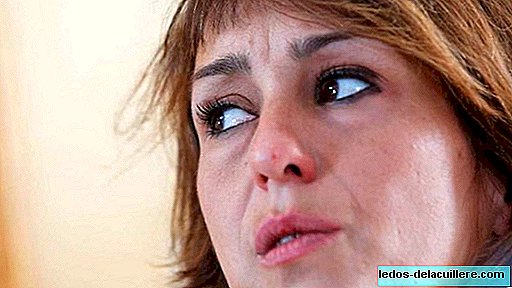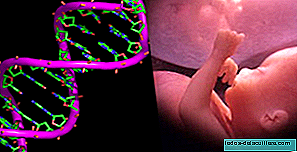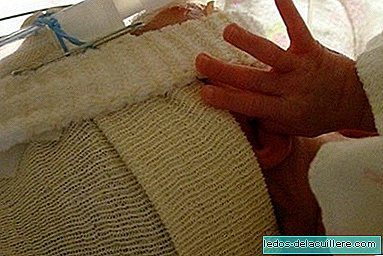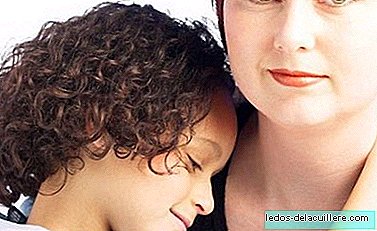In a country sensitized to gender violence, that of Juana Rivas has become one of the most commented cases of recent times. After having been missing with her children for a month, finally yesterday the mother of the two children, aged 11 and 3, was placed at the disposal of Justice and despite the request of prison of the Prosecutor's Office, her provisional freedom was ruled, although the order to give his children to the father convicted of abuse is still in force.
Babies and more have contacted Patricia Orejudo, a lawyer for Women's Link Worldwide, a non-profit organization that uses the power of law to promote and defend the rights of women and girls. She has given us the point of view of the association on the Juana Rivas case.
Can it be considered kidnapping that Juana Rivas refuses to give her children to the father convicted of abuse?
From Women's Link Worldwide we believe that the debate should not be focused on questioning the decisions you have made because we run the risk of forgetting what is really important: which has led him to this difficult situation. Certainly, something is failing in the judicial system so that you have had to make this difficult decision.
The instruments that regulate situations such as Juana's, contemplate that it is not obligatory to order the return of minors if it is demonstrated that they can suffer physical or psychological damage. In the case of Juana, it has not been taken into account that by mistreating her partner, the father also mistreats her children, and that on many occasions abusive men exert violence against their children as a form of violence against mothers. It has not been taken into account that minors are also in danger.
"It is not mandatory to order the return of minors if it is demonstrated that they may suffer physical or psychological harm."
Should a father who has been convicted of abuse be given a second chance?
An abuser is not a good father. This is a premise from which justice should always start. Children are direct victims of gender violence even if they do not suffer physical aggressions, because they are witnesses to that violence and because violent relationships and abuse of power become the reality in which they develop. In addition, they can become an instrument that the father uses to perpetuate and maintain violence against women. In the case of Juana, in particular, that second opportunity was given, and it was the persistence of the abuse that forced this woman to flee with her children.
What must be done is to analyze the specific case and always take into account the best interest of the minor over the alleged rights of the abuser. If there is a history of gender violence, they should be taken into account when establishing the visitation or custody regime, as requested by the UN when it condemned Spain for the case of Ángela Carreño. But nevertheless, in practice this is not being fulfilled.
There are still many stereotypes against women, like "all they want is to hurt men." Unfortunately, all these prejudices that prevent women and their children from accessing justice have the consequence that the number of children killed by the abusers remains very high.
"The Law currently establishes that the best interest of the minor must be assessed when determining custody rights and visits."What do you think about Juana Rivas's decision to run away with her children?
From Women's Link Worldwide we believe that the debate should not be centered on whether Juana Rivas made a good decision or not, but on what circumstances led her to take it.
Women continue to face day to day a justice that prejudges them and discriminates because they are women, based on stereotypes about what a 'good mother' should be, about how a victim of gender-based violence should behave, etc.
In any case, what justice cannot forget is that to decide on the visitation or custody of children, It is essential to assess the best interests of minors, as established by the Convention on the Rights of the Child. And this interest must prevail over the alleged visitation rights of the abusive parents.

Are the children of battered women safe when they separate from their parents? How is the law in these cases?
Only so far this year 6 children have been killed by abusers, according to official data of the Ministry of Equality. The sons and daughters of victims of gender-based violence can become a way of continuing to harm women, of perpetuating violence towards them and, in many cases, finally being killed.
The Law currently establishes that the best interests of the minor must be assessed when determining custody rights and visits. And in this assessment, as recommended by the CEDAW Committee when it condemned Spain for the case of Ángela Carreño, the history of gender violence should be taken into account. With the current law this would be possible (in fact, the Istanbul Convention already states that sons and daughters are victims of the violence exercised by fathers against their mothers), but in practice it does not happen, by how the interest of minors.
"The law must be amended to make explicit the obligation to assess the history of gender violence when deciding on custody and visitation rights."Stereotypes that violate the rights of women and their children are used in the application of the rules. Stereotypes, for example, that the positive thing for them is that they relate to the two parents, whatever they may be.
For example, in the case of Juana, the son has stated that his father locked his mother and that he took away his car keys, so he left her isolated (in a rural house away from civilization, on a small island). However, this fact, undoubtedly violent for the child, has not been considered of sufficient entity. Instead of protecting the child and his brother from the violence that the father generates, their importance is minimized (“they are couple fights”), or, perhaps, it is even thought that the child lies because the mother manipulates. And stereotypes against women also work, as they are exaggerated, liars or manipulators. The father's defense, in fact also sits on that other stereotype: that women are capricious. And they work.
And the most serious thing is that the courts are not even aware that these stereotypes work, leaving victims of violence defenseless. In this regard, the Spanish State has also not complied with CEDAW's recommendation to establish mandatory training on gender violence and gender stereotypes to all operators who participate in decisions in situations of violence (judicial bodies, officials ...).
More on the Juana Rivas case
Case of Juana Rivas: does the mother do well to keep running away with her children so as not to hand them over to the father?
Juana Rivas Case: The Hearing rules that you have three days to deliver your children
Juana Rivas case: the Constitutional rejects the appeal for amparo, and it only remains for him to go to the Human Rights Court
Case of Juana Rivas: the mother is provisionally released and returns home with her children












